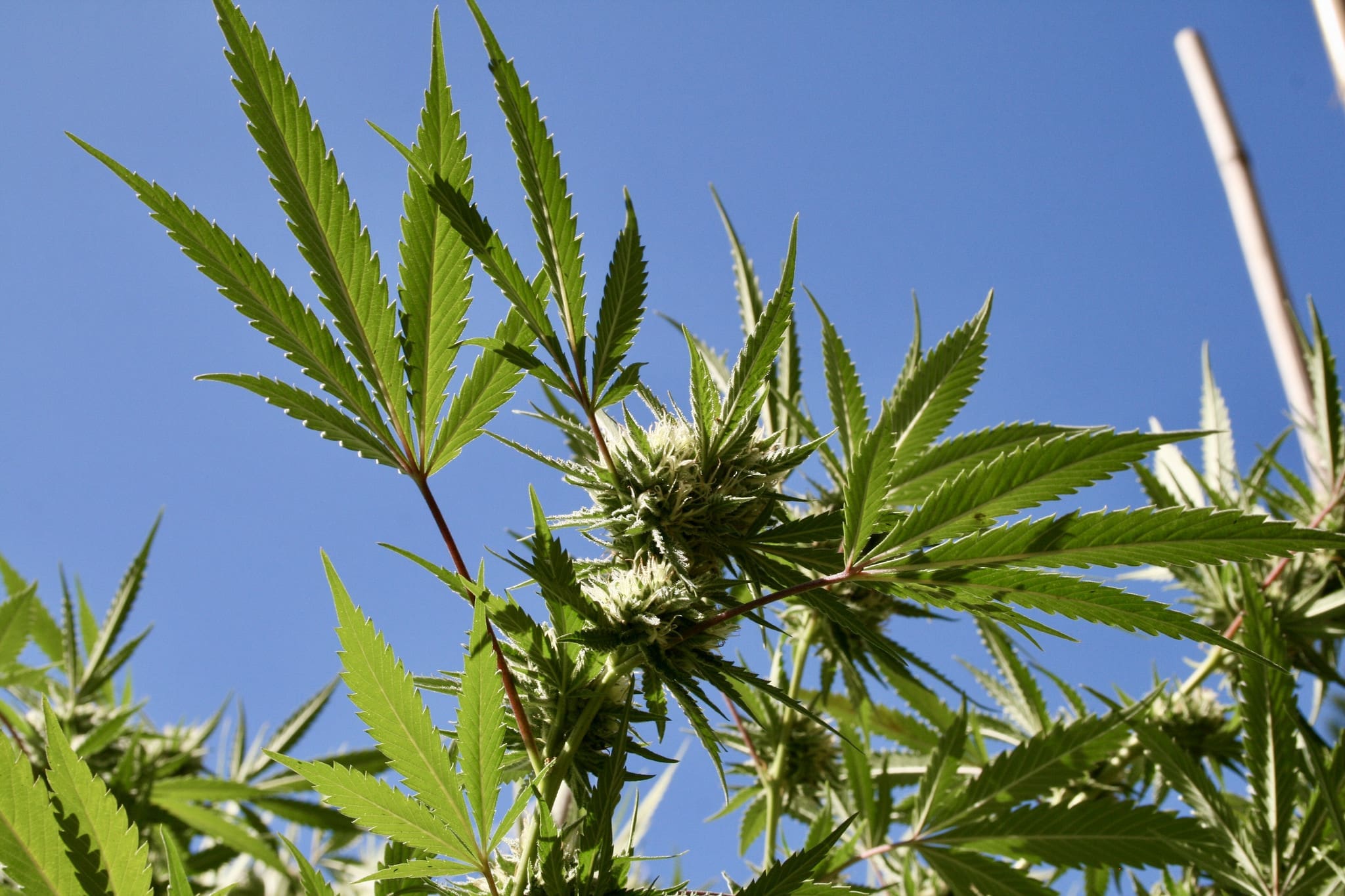Politics
Hawaii Attorney General Unveils Draft Marijuana Legalization Bill, Drawing Mixed Reactions From Lawmakers And Advocates

Hawaii’s attorney general has released a comprehensive proposal to legalize adult-use marijuana—with lawmakers already expressing interest in advancing it as advocates call for revisions to bolster equity provisions and remove language that could perpetuate criminalization.
Attorney General Anne Lopez (D), who announced her office’s support for cannabis legalization in April and pledged to work with the legislature to enact the reform, unveiled the 294-page legislation on Friday. Under the proposal, a regulatory framework would be established to allow adults 21 and older to possess, cultivate and purchase marijuana from licensed retailers.
Hawaii lawmakers have introduced legalization legislation in recent sessions, with the Senate passing a reform bill in March, but it’s yet to be enacted. Legislators and the attorney general have signaled that 2024 is the year legalization will become law.
For his part, House Judiciary Committee Chairman David Tarnas (D) told Hawaii News Now that the attorney general did “a really good job pulling together all of the different input and providing a comprehensive bill.”
Sen. Jarrett Keohokalole (D), chair of the Senate Commerce and Consumer Protection Committee, said the attorney’s proposal is “the best version to date,” touting the measure’s “efforts to try and address a lot of the issues that came up along the way” with prior legalization legislation.
Advocates, meanwhile, are encouraged by the introduction of the reform proposal by the high-ranking state official. But while they support several key components, such as the inclusion of a home grow option, they’ve also identified areas where they want to see equity-focused changes that incorporate meaningful relief for people who’ve been criminalized over cannabis and prevent further penalization over marijuana-related activity.
The legislation would not provide for expungements, for example. Rather, it would require experts to issue a report on the “advisability” of offering such relief for low-level offenses by late 2026. The bill also calls for a significant infusion of cannabis tax revenue to law enforcement, while maintaining strict penalties for activity such as driving with an open container of marijuana or improperly storing products and plants.
“The attorney general’s draft bill falls short when it comes to fostering equity and reparative justice,” Karen O’Keefe, director of state policies at the Marijuana Policy Project (MPP), told Marijuana Moment. “It should be revised. We were pleased to see home cultivation included. But the draft ramps up criminalization in other areas and fails to include provisions newer legalization states have adopted to stop ruining cannabis consumers’ lives.”
“The draft bill does not include expungement or resentencing, nor does it protect responsible cannabis consumers from losing their children, jobs, benefits, or professional licenses,” she said. “It imposes an unscientific per se DUI standard that ensnares sober drivers, and imposes up to a year in jail under a broad open container law. The draft also pours millions of dollars into cannabis law enforcement—an amount equal to the entire allocation for social equity and community reinvestment.”
Here are the key provisions of the attorney general’s draft marijuana legalization bill:
- Adults 21 and older could purchase and possess up to one ounce of cannabis and five grams of non-flower marijuana products.
- Adults could cultivate up to six plants in a secured location at their residences and store up to 10 ounces of cannabis from those plants. A single household could not have more than 10 plants, regardless of the number of people living there.
- The possession and cultivation legalization provisions wouldn’t become effective until January 1, 2026.
- A five-member Cannabis Control Board would be established, with members appointed by the governor and confirmed by the Senate.
- The board would be responsible for regulating the market and issuing marijuana business licenses for cultivators, processors, medical cannabis dispensaries, adult-use retailers, craft cannabis dispensaries and independent labs.
- Regulators could also adopt rules to provide permits for special events, social consumption lounges and trucking transportation.
- Licensing applicants would need to be Hawaii residents for at least five years. People with prior felonies (except most dealing with marijuana) would be precluded from obtaining licenses.
- To promote industry ownership diversity, licensees could not have an interest in more than three businesses of a single license type, and they could only have interests in a total of nine licenses altogether.
- The board would be authorized to add criteria for licensure to promote public health and safety, agricultural sustainability, and participation in the market by people from historically disadvantaged communities.
- Regulators would also need to adopt rules setting potency limits on cannabis products, and they would be empowered to restrict certain products from being marketed. The board would also need to develop rules banning or restricting the use of synthetic cannabinoid products.
- Existing medical cannabis dispensaries would likely be first in line to obtain adult-use retailer licenses, with rules allowing them to convert their licenses starting October 1, 2025.
- Individual counties would be able to set restrictions on the locations of marijuana businesses, but they could not outright ban them.
- A cannabis enforcement division would be created under the Department of Law Enforcement to investigate illegal cannabis activity.
- Marijuana products would be subject to a 10 percent excise tax, plus the state’s standard four percent sales tax.
- The bill calls for tax revenue to be distributed to a cannabis regulation special fund (40 percent), cannabis social equity fund (20 percent), public health and education fund (20 percent) and marijuana lawn enforcement special fund (20 percent).
- Financial institutions would be protected from being penalized under state law simply for working with state-licensed cannabis businesses.
- Social equity applicants would be defined as businesses with at least 51 percent ownership by a person who’s lived in a disproportionately impacted community for a minimum of five out of the last 10 years. Disproportionately impacted areas would be defined as those that are historically disadvantaged, areas of “persistent poverty” and medically underserved.
- Regulators would waive 50 percent of application fees for eligible social equity applicants, and they would need to create a grant fund to provide such applicants with training and technical assistance. Grants would also support community-based organizations working to broader address the needs to disadvantaged areas.
- The bill would not provide for automatic expungements or resentencing for prior cannabis convictions. Instead, it would require the board to create a report by late 2026 or early 2027 on the “advisability of expunging or sealing low level cannabis offenses” and the mechanisms on how to process such relief.
- Regulators would also need to carry out research and compile reports on annual marijuana business licensing, production and tax data, as well as social and economic trends, impact on illicit markets and more.
“While it’s encouraging that the AG addressed many policy concerns, Hawaii deserves a cannabis market that prioritizes social equity in market structure, revenues, expungement, and community reinvestment,” Nikos Leverenz of the Drug Policy Forum of Hawai’i and the Hawai’i Health and Harm Reduction Center told Marijuana Moment.
“Legislators should offer changes to ensure broad participation from smaller cannabis farmers and manufacturers on every island. Rather than padding law enforcement budgets, revenues ought to support communities that have been harmed by drug law enforcement,” he said. “Cannabis prohibition helps sustain a bloated probation system that is marked by the longest average term in the nation.”
He added that Gov. Josh Green (D) should “follow the lead” of Minnesota Gov. Tim Walz (D) and New Jersey Gov. Phil Murphy (D) by becoming “a vocal proponent for reform in ongoing deliberations.”
“On this front, there is no substitute for active executive leadership,” Leverenz said. “A thriving cannabis sector that cultivates broad participation from smaller farmers and entrepreneurs may prove to be a boon to everyone but those wedded to the cruel austerity of prohibition.”
—
Marijuana Moment is tracking more than 1,000 cannabis, psychedelics and drug policy bills in state legislatures and Congress this year. Patreon supporters pledging at least $25/month get access to our interactive maps, charts and hearing calendar so they don’t miss any developments.
![]()
Learn more about our marijuana bill tracker and become a supporter on Patreon to get access.
—
Meanwhile, the separate legalization bill that advanced through the Senate in March is still in play in the two-year legislative session. Advocates appreciated that the legislation additionally provides for expungements, but it’s been stalled in the House.
Legislators have worked to enact legalization in the Aloha State over several sessions. The reform was also approved in the Senate in 2021, but it similarly failed to proceed past a House committee by a key deadline.
Advocates struggled under former Democratic governor, Dave Ige, who resisted legalization in part because he said he was reluctant to pass something that conflicts with federal law.
But since Green took office, activists have felt more emboldened. He said last year that he’d sign a bill to legalize cannabis for adults and already has ideas about how tax revenue from marijuana sales could be utilized.
In April, the Hawaii legislature also approved a resolution calling on the governor to create a clemency program for people with prior marijuana convictions on their records.
Separately, in August, a Hawaii psychedelics task force that was established under the governor’s office held its first meeting as experts work to prepare the state to potentially allow regulated access to novel therapies like psilocybin and MDMA.
Read the text of the Hawaii attorney general’s draft marijuana legalization bill below:
Photo courtesy of Brian Shamblen.
















